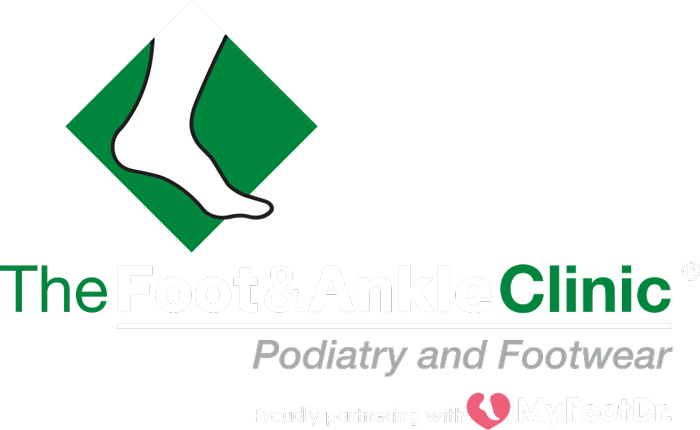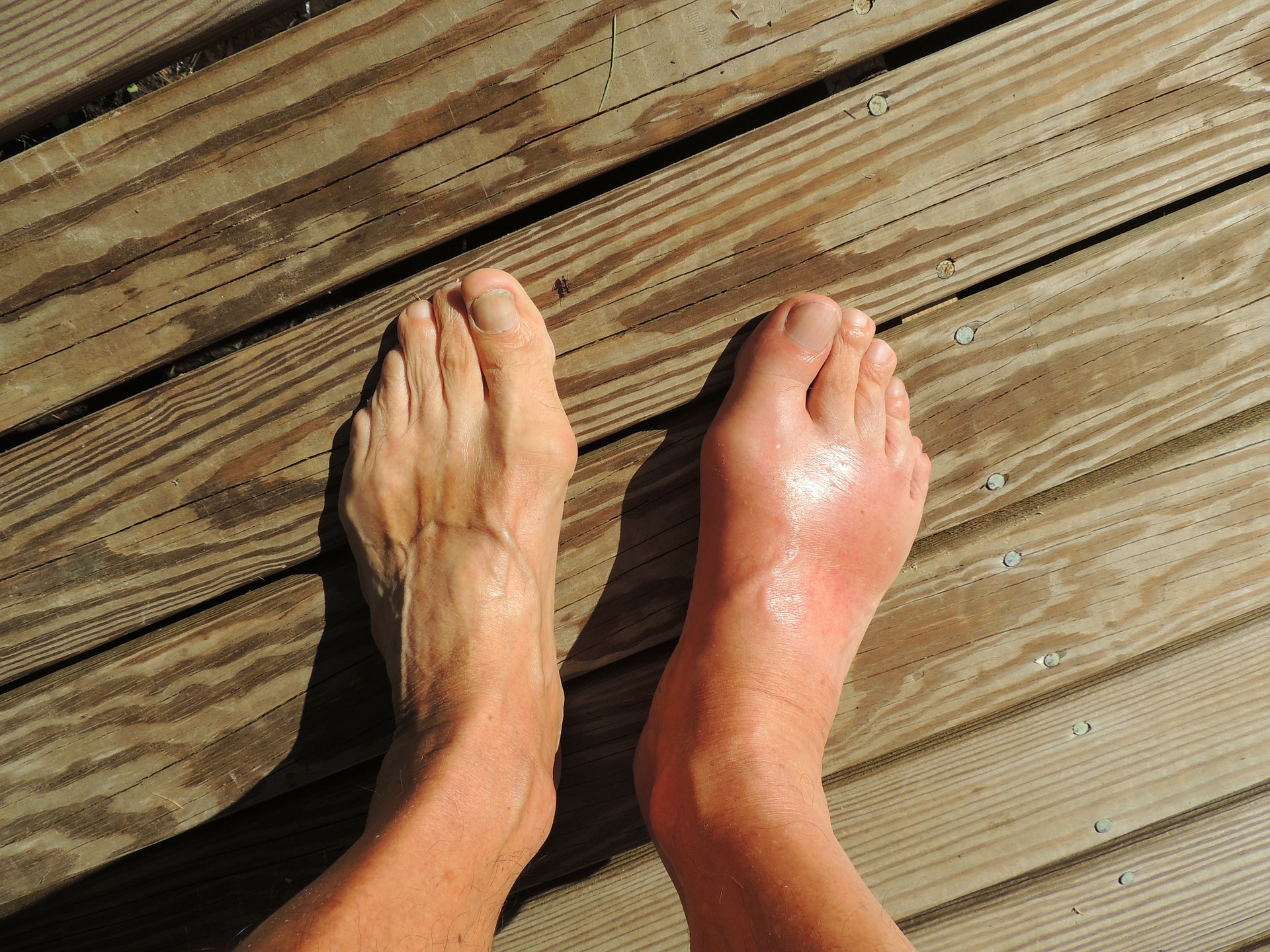Gout
What is gout?
Gout is a painful inflammation of a joint. The big toe is the joint most commonly affected, although the hands, wrists, knees, ankles, elbows or any other joint can be affected.
Gout is the result of a build of waste material called uric acid, which forms tiny crystals in some of the joints of the body. Uric acid is normally found in the blood of all people, and comes from the breakdown of cells, DNA and from the food and drinks we consume each day.
Uric acid is mostly excreted by the kidneys. Too much uric acid builds up in the blood either because it is not excreted quickly enough or because too much is being produced. This excess can end up in the joints as crystals (called ‘urate’). These crystals can cause sudden and severe inflammation of the joint.
Gout is uncommon in women before the onset of menopause. It is more common in men than in women, and in older people than in younger people, but can affect anyone.
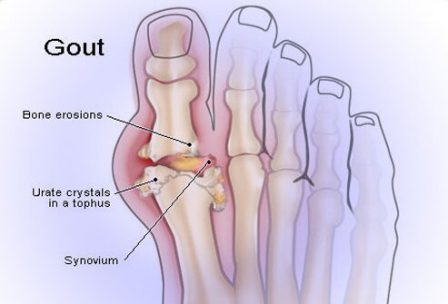
What causes gout?
Apart from sex and age, gout is most common in people who:
- are taking medications that increase water excretion by the kidneys (diuretics)
- are overweight
- have kidney disease, high blood pressure, or abnormal levels of fat and cholesterol in the blood
- eat plenty of foods containing the chemicals from which uric acid is created such as meats (especially beef, pork, lamb, liver); seafood (especially anchovies, herring, mackerel, sardines, fish roe, mussels and scallops); vegetables (such as asparagus, kidney beans, lima beans, lentils and spinach); or foods or supplements that contain yeast extract (such as beer and Vegemite)
- drink alcohol, especially beer or spirits, as these contain high levels of purines, a chemical that is broken down into uric acid
- drink sugar-sweetened soft drinks and drinks with high levels of fructose
- are of Maori and Pacific Islander origin, as they tend to have high uric acid levels which predispose them to gout.
Gout can also affect people with certain types of blood disorders (such as the blood cancers leukaemia and lymphoma) and people being treated for cancer.
Prompt treatment will help relieve the pain and inflammation of acute gout.
Frequently, attacks of gout can cause irreversible damage to the joint and the nearby bone. This is one of the main reasons people suffering gout should seek medical help.
Symptoms of gout
The symptoms of a gout attack include:
- Sudden, intense pain in one more more joints.
- Swelling and inflammation in and around the joint.
- A feeling that the joint is very hot.
- Red, shiny skin around the joint.
- Extreme tenderness (for example, even a sheet over the skin can be unbearable).
- Reduced movement.
- Itchy, flaky skin as the swelling goes down.
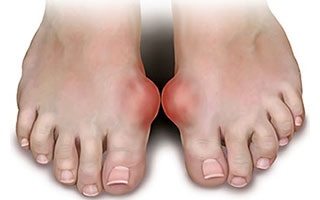
Uric acid and gout
A person is more likely to develop gout if they have high levels of uric acid in their body, a condition known as hyperuricaemia.
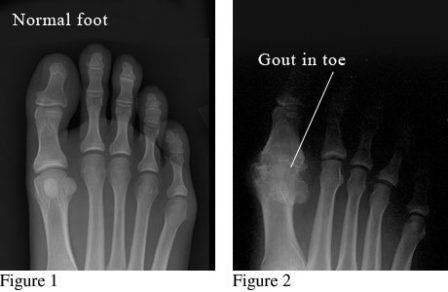
Things that can increase levels of uric acid include:
- Diet: Consuming large amounts of red meat and oily seafood and drinking large amounts of sweetened drinks;
- Alcohol: Drinking excessive amounts of alcohol, especially beer, fortified wine (e.g. port) and spirits;
- Overweight and obesity: Being overweight or obese makes it harder for the kidneys to get rid of uric acid
- Certain medications: The use of some blood pressure medications including diuretics, ACE inhibitors and beta blockers, as well as low-dose aspirin, cyclosporin (used to treat psoriasis) and some medications used by people who have had an organ transplant
- Medical conditions: Some diseases that increase uric acid levels include untreated high blood pressure, diabetes, heart disease, kidney disease and the metabolic syndrome
- Age and sex: Men often have higher uric acid levels; after menopause, women’s uric acid levels may also rise
- Family history of gout: people are more likely to develop gout if a family member has it
- Recent surgery or trauma: People who have had a recent operation or experienced recent trauma often have high levels of uric acid in their blood.
The treatment of gout involves several stages:
- Pain relief for a gout attack
- Treatment to prevent further attacks
- Strategies to prevent the complications of gout
Management of other medical conditions that can increase the chances of developing gout, such as excessive alcohol intake, high cholesterol, high blood pressure, diabetes and obesity.
At the Foot and Ankle Clinic our highly qualified team of Podiatrists are all members of the Australian Podiatry Association and offer a combined 50 years’ experience. They are trained to diagnose and effectively treat gout via a range of treatments.
Put your feet in our hands! See us today in Chadstone, Moe, Sale, Traralgon, Warragul & Online Store and Retail Enquiries. NO REFERRAL NEEDED!.
